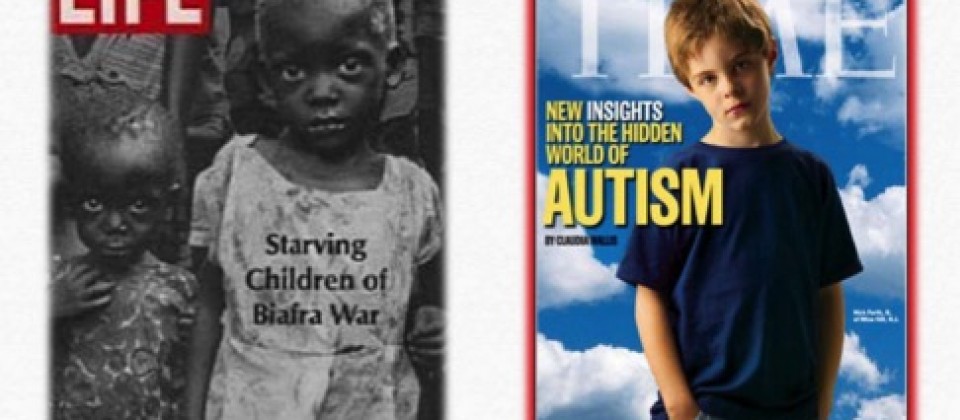Ronnie Thibault, M.A., Cultural Studies University of Washington Bothell
This research draws from representational theory to explore how humanitarian aid, global development and advocacy organizations, journalists, governments, institutions and the media interact to reproduce stereotypical notions regarding individuals, geographies and cultures framed as under or improperly developed. Representations of helpless, victimized and destitute children located in the ‘global South’ and autistic children ‘suffering in worlds of their own’ saturate television screens, fundraising campaigns, news and documentary productions and social media platforms. The imagery of child saving does a great deal of work in the political economies of global development and developmental disabilities while erasing individuals, regions and cultures from the political landscape. International non-governmental organizations, nonprofit organizations, private industries, governments, institutions, journalists and the public interact to reproduce and recirculate specific meanings about individuals, regions and cultures perceived as somehow differently developed. This representational analysis considers the cultural politics embedded within these representational systems, discursively analyzes media, narrative and historical productions and engages Google mapping tools to trace their political economies across time and place. Digital mapping techniques allow me to visually situate the research data alongside the conceptual and discursive elements of the project. This method encourages individuals to move between theory, images, textual evidence and the historical and cultural artifacts on their own terms. The Google map conveys a visual impression of historical and contemporary discourses of global development and developmental disabilities and provides a digitally interactive assessment of how myths about developmental differences recirculate, how societies arrive at their understandings about unfamiliar ways of being and the powerful interests these discourses serve.


Leave a Reply